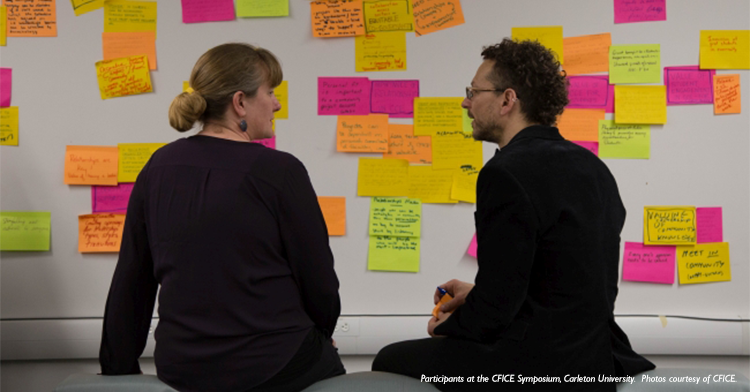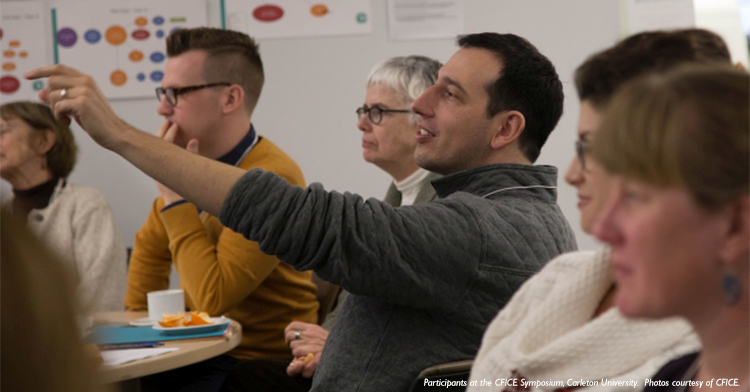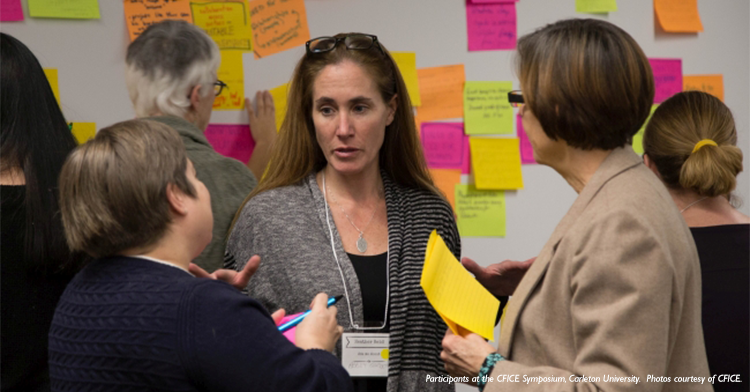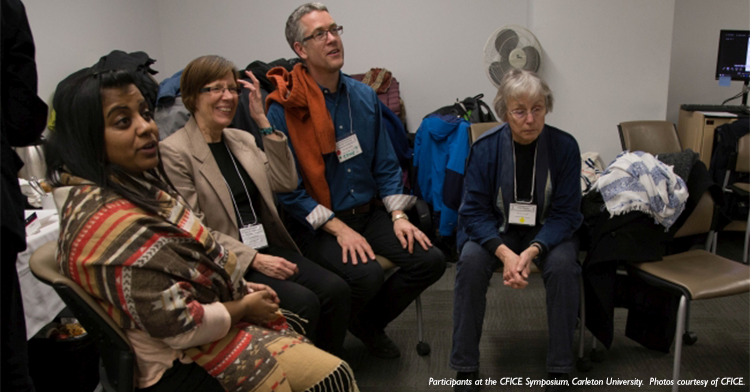CFICE Symposium: Taking Stock and Moving Forward on Community-Campus Engagement

January 18-19, 2017 CFICE (Community First: Impacts of Community Engagement) held a two day Symposium in Ottawa to reflect on the learnings and outcomes of their research into community-campus engagement. CFICE is an action research project aimed at understanding how community-campus partnerships can be designed and implemented to maximize the value created for non-profit, community-based organizations. Food Secure Canada has been an active partner in CFICE, first as a co-lead on the Food Security Hub in Phase 1 of the project, and now co-leading a Working Group on Community-Academic Partnership Brokering (to see a list of all the Hubs in Phase 1 and current Working Groups). The Symposium was a unique opportunity to meet with other community organizations and academics involved in the project, and to learn from their experiences with community-campus engagement.
What is Community-Campus Engagement you ask? Well the short answer is that it depends who you talk to! Generally speaking, Community-Campus Engagement (CCE) speaks to the various forms of partnerships, relationships and collaborations that are established between higher education institutions (including students, faculty members and staff) and community-based organizations. One of the key questions guiding CFICE is how to build and strengthen CCE in a way that adds value to, and meets the needs of, not only academic partners, but community partners as well. What does CCE looks like from a “community-first” perspective?
Having joined the Food Secure Canada team this past summer to work on a number of projects including FSC’s partnership with CFICE, the Symposium was my first chance to meet a lot of the partners from Phase 1 of the project, and really get a sense of the overall goals and objectives of the project. Participants shared stories from their projects, and we collectively brainstormed challenges, opportunities and proposals to strengthening processes and capacities for community-campus engagement.
I came away from the Symposium with a deeper appreciation for the diversity of ways that campus-community engagement is taken up in different contexts, for different purposes. For example, in Haliburton, the U-Links Centre for Community-Based Research matches university students with a range of local organizations looking to engage in research to support their mandate in the community. In Ottawa, the Eco-Talent Network builds the capacity of community groups by connecting them with students, faculty and other advisors to provide expertise or capacity in support of an environmental project. In some cases, CCE might involve a student earning a credit through a community-based placement, or it might mean a community organization working in partnership with an academic to draft a policy brief or discussion paper.
As we work towards a National Food Policy, I am particularly excited about the opportunities to collaborate with students and faculty, and leverage their research and knowledge in support of a multi-stakeholder policy-building process. Through our work with CFICE over the next two years, Food Secure Canada will be able to build its capacity to broker and foster meaningful relationships between community and academic actors that support a national food policy and work towards food sovereignty in Canada.
Amanda Wilson works with Food Secure Canada coordinating their work on New Farmers, Northern Food and Community-Academic Collaboration. She is a post-doc fellow at Lakehead University and can be reached at community@foodsecurecanada.org.



- Log in to post comments

